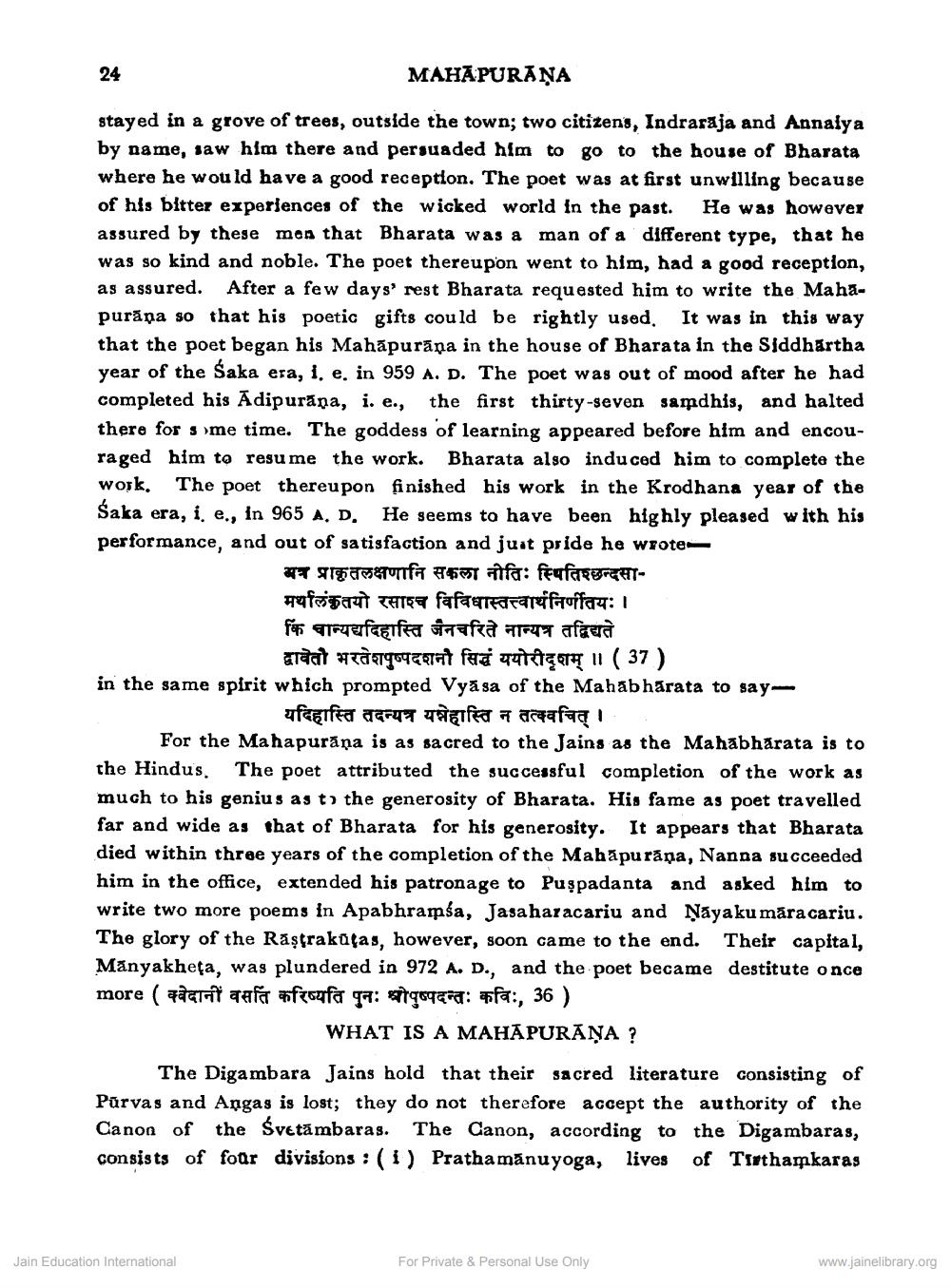________________
24
MAHA PURANA
stayed in a grove of trees, outside the town; two citizens, Indraraja and Annalya by name, saw him there and persuaded him to go to the house of Bharata where he would have a good reception. The poet was at first unwilling because of his bitter experiences of the wicked world in the past. He was however assured by these men that Bharata was a man of a different type, that he was so kind and noble. The poet thereupon went to him, had a good reception, as assured. After a few days' rest Bharata requested him to write the Mahapurāņa so that his poetic gifts could be rightly used. It was in this way that the poet began his Mahāpurāņa in the house of Bharata in the Siddhartha year of the Saka era, i. e. in 959 A. D. The poet was out of mood after he had completed his Adipurāna, i. e., the first thirty-seven samdhis, and halted there for some time. The goddess of learning appeared before him and encouraged him to resume the work. Bharata also induced him to complete the work. The poet thereupon finished his work in the Krodhana year of the Śaka era, i, e., in 965 A. D. He seems to have been highly pleased with his performance, and out of satisfaction and just pride he wrote
पत्र प्राकृतलक्षणानि सकला नीतिः स्थितिश्छन्दसामर्थालंकृतयो रसाश्च विविधास्तत्त्वार्थनिर्णीतयः । कि चान्यद्यदिहास्ति जैनचरिते नान्यत्र तद्विद्यते
aratat ca ergo929197 faz T AÇar 11 ( 37 ) in the same spirit which prompted Vya sa of the Mahabharata to say
यदिहास्ति तदन्यत्र यन्नेहास्ति न तत्क्वचित् । For the Mahapurāņa is as sacred to the Jains as the Mahabharata is to the Hindus. The poet attributed the successful completion of the work as much to his genius as to the generosity of Bharata. His fame as poet travelled far and wide as that of Bharata for his generosity. It appears that Bharata died within three years of the completion of the Mahapu rāna, Nanna succeeded him in the office, extended his patronage to Puşpadanta and asked him to write two more poems in Apabhramśa, Jasaharacariu and Nayaku măra cariu. The glory of the Raşçrakūtas, however, soon came to the end. Their capital, Mányakheta, as plundered in 972 A. D., and the poet became destitute once more ( qaroit aafar afrofa ya: 96994a: 4a:, 36 )
WHAT IS A MAHĀPURĀŅA ?
The Digambara Jains hold that their sacred literature consisting of Pūrvas and Angas is lost; they do not therefore accept the authority of the Canon of the Śvetämbaras. The Canon, according to the Digambaras, consists of four divisions : (1) Prathamānuyoga, lives of Tirthamkaras
Jain Education International
For Private & Personal Use Only
www.jainelibrary.org




